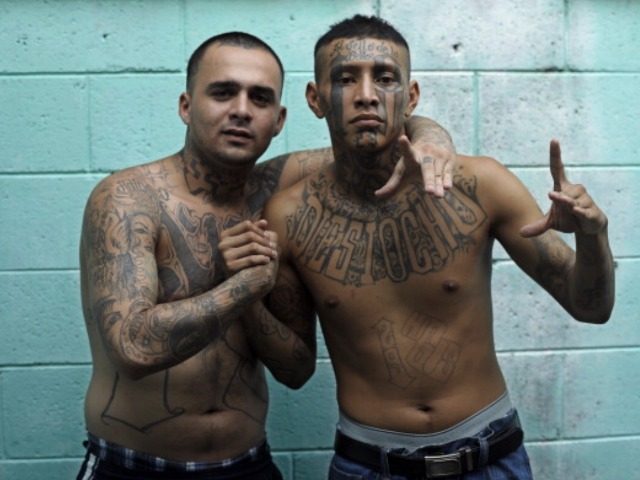The presence of illegal alien gangs in U.S. communities is due to decades of failure on the part of our federal government to secure our southern border and policies that allow such criminals to find sanctuary on U.S. soil. From traditional street gangs, prison based gangs, and those that have evolved into transnational criminal organizations, these gangs are causing communities to drain valuable resources to combat the crime wave that accompanies them. Additionally, the flood of unaccompanied minors since 2012 from primarily El Salvador, Honduras, and Guatemala has provided some of these gangs with a steady flow of members to bolster their ranks.
The five listed gangs are gangs made up of primarily illegal aliens or a mix of illegal aliens and Mexican-American citizens. These gangs are operating in your communities as well as back in their countries of origin and are all engaged in street level or wholesale drug dealing, extortion by taxing, and murder. Some of these gangs are involved in human smuggling, sexual assaults related to their human smuggling activities, and each are working as foot soldiers for Mexican transnational drug trafficking organizations (cartels.)
1. MS-13 or Mara Salvatrucha or also known as “La Mara.”
MS-13 originated in the early 80’s, primarily in Los Angeles. A wave of refugees flooded into the U.S. during this time from El Salvador, Guatemala and Nicaragua due to the civil wars that were ravaging central America. Originally, MS-13 consisted of primarily Salvadorans, but later the gang expanded to other Spanish-speaking nationalities; the gang later started expanding to other cities and states.
During a 10-year period between 2005 and 2014, U.S. officials arrested 4,000 members of MS-13, 92 percent were in the United States illegally, according to data obtained by the Center for Immigration Studies.
In October 2012, the US Department of the Treasury labeled the group a “transnational criminal organization,” the first such designation for a US street gang.
2. 18th Street Gang or Barrio 18, or MS-18 in El Salvador
The 18th street gang originated around 1965 in Los Angeles and were originally a Mexican-American gang. At the current time, 18 street has become primarily a gang of illegal aliens in California where 80% of its members are from either Mexico or El Salvador. They are the largest street gang in California, and have spread throughout the United States, Mexico and Central America. Their bitter rivalry with MS-13 has led to countless homicides over the years in the U.S. and throughout Central America.
3. Barrio Azteca
Barrio Azteca formed in 1986 in an El Paso prison. They are a mixed gang of Mexican-American and illegal aliens from Mexico. They are extremely violent and are very active in the prison system in Mexico as well. They are aligned with La Linea which is the armed wing of the Juarez cartel and have carried out hits and kidnapping for them — both in the U.S. and in Mexico. Barrio Azteca gained notoriety when it was learned that they were using U.S. soldiers as hired assassins.
4. Border Brothers
The Border Brothers prison-based gang was founded in 1989 in Tijuana, Mexico. The gang later migrated across the border into the U.S. into San Diego and then into the California prison system. In 1990, they began recruiting other incarcerated Mexican illegal aliens and by 1994 the Border Brothers moved throughout California and Arizona. The Border Brothers later became one of the fastest growing gangs within the prison system. In the Arizona corrections system, they became the fastest growing security threat group (STG).
5. Partido Revolutionario Mexicano (PRM) aka Mexicles
The PRM (Partido Revolucionario Mexicano) aka Mexicles, is a prison-based gang which was founded in 1987 at the Cofield state prison in Texas. The gang was formed to unite all incarcerated Mexican illegal aliens for protection Mexican American (“Paisas”) and Black prison gangs. They have aligned themselves with the Border Brothers, another illegal alien prison gang based in California, Arizona and Mexico. The PRM primarily operates in Texas and Mexico.
Robert Arce is a retired Phoenix Police detective with extensive experience working Mexican organized crime and street gangs. Arce has worked in the Balkans, Iraq, Haiti, and recently completed a three-year assignment in Monterrey, Mexico, working out of the Consulate for the United States Department of State, International Narcotics and Law Enforcement Program, where he was the Regional Program Manager for northeast Mexico (Coahuila, Tamaulipas, Nuevo Leon, Durango, San Luis Potosi, Zacatecas.)

COMMENTS
Please let us know if you're having issues with commenting.